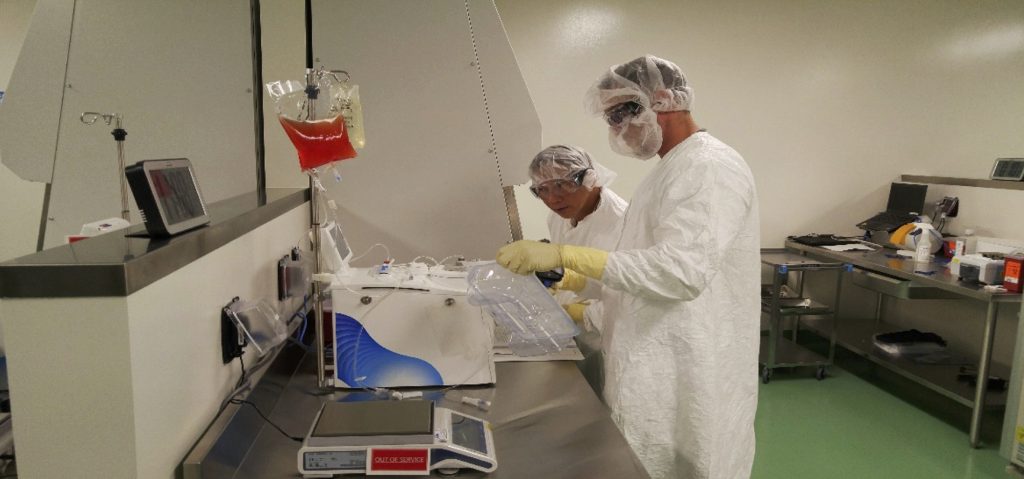A study in Aurora is trying to determine if more patients could benefit from reprogramming their own cells to fight cancer, which has been a last-resort option for blood cancer patients when other treatments failed.
Chimeric antigen receptor T cell therapy, also known as CAR-T, is a form of immunotherapy that entails taking cells from the patient's body and modifying them to attack cancerous cells with specific proteins on their surfaces. The patient then receives the modified cells through infusion.
A study at the University of Colorado's Gates Institute on the Anschutz Medical Campus is examining CAR-T in adult patients with acute lymphocytic leukemia, a cancer affecting the blood and bone marrow. Dr. Terry Fry, the institute's executive director, noted that the first round of chemotherapy either failed or resulted in a disappointing response, indicating potential ineffectiveness in the long term.
This specific study is focused on safety and is expected to have initial results next year. If no issues are found, a larger study will investigate whether patients fare better with CAR-T compared to another round of chemotherapy, Fry explained.
When a new cancer treatment involves unknown risks, it is typically administered to patients with no other options. If it proves effective without causing unacceptable side effects for treatment-resistant cancer patients, researchers may explore offering it earlier,
Fry explained, referring to the necessity of patients taking risks to be the first to receive successful treatments.
Patients with the type of leukemia under study at CU generally have two options: grueling chemotherapy or a bone marrow transplant. If effective, CAR-T offers the advantage of a one-time treatment,
Fry noted.
For patients who do not achieve remission after chemotherapy, another round often yields limited improvement. Therefore, if studies show that administering CAR-T earlier is beneficial, it could spare them from ineffective treatment, Fry highlighted.
“The current (drug) label requires us to force that patient to get another line of treatment so they can relapse, and then we can give them a CAR,” he said.
Immunotherapy comes with its own risks, including the development of secondary cancers, and a small number of patients have developed lymphoma after receiving CAR-T for another blood cancer. According to Fry, it is currently unclear whether CAR-T or the patients' previous chemotherapy led to the development of lymphoma. Approximately 3% of patients with one type of blood cancer develop a secondary cancer, irrespective of CAR-T treatment, he added.
“It’s very rare that a cancer treatment is a free lunch,” he said. “So far, (secondary lymphoma) looks to be extremely, extremely rare.”
T cells are a part of the immune system that eliminates infected cells. In CAR-T, they are modified to identify and attack cells with specific proteins on their surfaces. According to Fry, certain types of leukemia and lymphoma are relatively easy targets for CAR-T because the cancerous white blood cells have a protein that is unique to them.
Additionally, as long as people receive antibody drugs to protect them from disease, they can live without these cells for a while. Therefore, destroying healthy cells along with the cancerous ones does not cause much collateral damage.
Fry stated that developing CAR-T therapies for other cancers has been more challenging. To create a CAR-T that is effective for solid tumors, they would need to identify a protein on the surface of the cancerous cells that is not commonly found in the healthy organ nearby, and address other challenges that do not exist with blood cancers.
He expressed confidence that they will eventually solve this issue.









